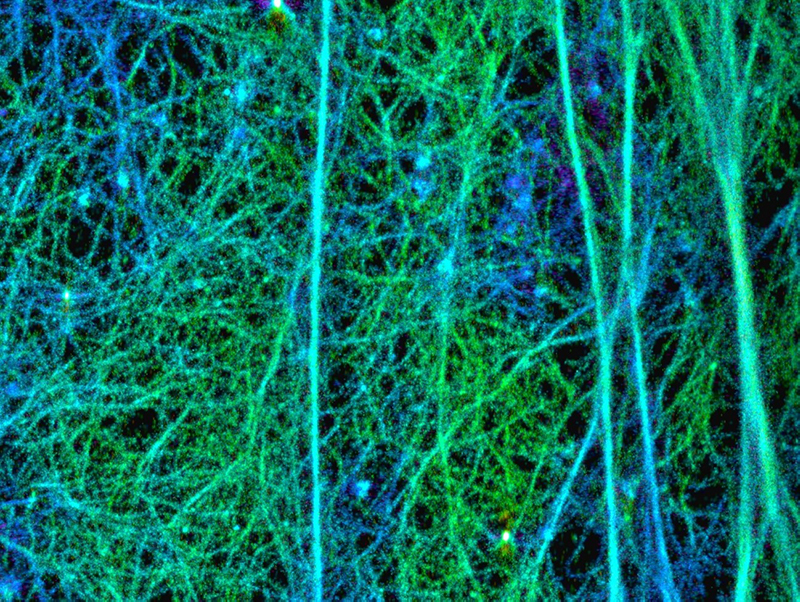Kyoto University researchers show how mutations in Sertoli cells can affect sperm development
Male infertility is estimated to affect approximately 10% of couples desiring children. One reason treatment remains limited is because of little understanding on spermatogenesis, the process by which sperm is formed.
A new study by the laboratory of Shuh Narumiya at Kyoto University published in PLoS Biology finds unexpectedly that two isoforms of the actin polymerizers “mammalian diaphanous homolog”, or “mDia”, have an essential role in mouse spermatogenesis.
"The development of germ cells into sperm depends on their interaction with Sertoli cells through specific cell-cell interactions that depend on the protein actin. These interactions require actin to polymerize," explains co-first author Dean Thumkeo.
The study shows that knocking out two isoforms of mDia, mDia1/3, in Sertoli cells, but not in germ cells, resulted in male infertility. Using superresolution microscopy and live imaging, the researchers analyzed how the adhesion between the Sertoli cells and the germ cells were affected by the knockout.
The mutated Sertoli cells showed a much sparser cortical actin meshwork due to less polymerization. This affects the adhesion between Serotli cells and germs cells and results in less spermatozoa.
In particular, the adherens junction, a common and critical structure in cell-cell interactions, and the ectoplasmic specialization junction -- a unique junction found between Sertoli cells and germ cells -- were both compromised.
The results suggest that in some cases of male infertility, it is not the germ cells that are defective, but rather the inability of Sertoli cells to provide the germ cells with the support necessary to complete spermatozoa.
The discovery that mDia1/3 could be the cause of this dysfunction was unexpected and adds to only the recent discovery of how regulation of actin can affect the development of other organ systems like the brain.

Sertoli cells support germ cells through cell-cell interactions. A cortical actin network causes weaker adhesion and less spermatozoa (Kyoto University/Narumiya Lab)
Paper information
【DOI】 https://doi.org/10.1371/journal.pbio.2004874
【KURENAI ACCESS URL】 http://hdl.handle.net/2433/234707
Satoko Sakamoto, Dean Thumkeo, Hiroshi Ohta, Zhen Zhang, Shuangru Huang, Pakorn Kanchanawong, Takayoshi Fuu, Sadanori Watanabe, Kentaro Shimada, Yoshitaka Fujihara, Shosei Yoshida, Masahito Ikawa, Naoki Watanabe, Mitinori Saitou, Shuh Narumiya (2018). mDia1/3 generate cortical F-actin meshwork in Sertoli cells that is continuous with contractile F-actin bundles and indispensable for spermatogenesis and male fertility. PLOS Biology, 16(9):e2004874.





